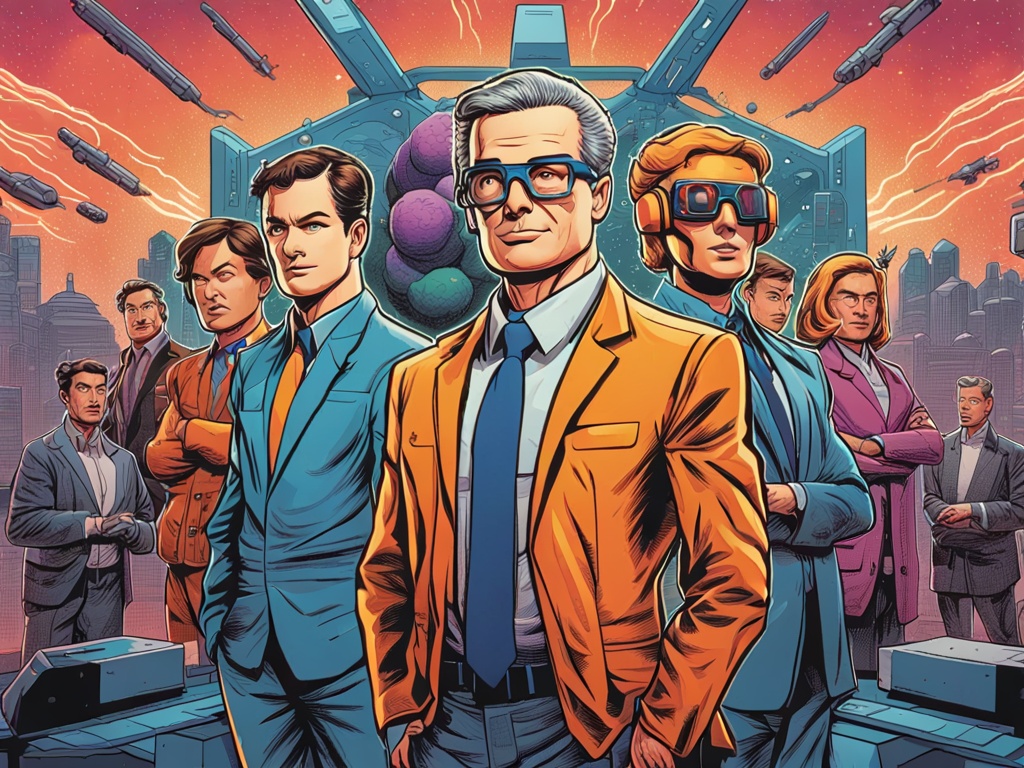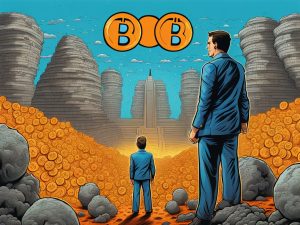Exploring the Future of AI: Insights on AGI and Workforce Integration 🌐
OpenAI’s CEO Sam Altman has made a remarkable announcement, claiming that his organization has made significant strides toward achieving artificial general intelligence (AGI). This year marks not only the second anniversary of ChatGPT but also a pivotal moment in the conversation surrounding AI’s role in the workforce. Experts weigh in on the implications of Altman’s statement and the realistic timeline for AI developments.
OpenAI’s Vision of AGI and the Workforce 🚀
This year, OpenAI has reached a substantial milestone, boasting over 300 million active users weekly. In a recent blog post, Altman declared that they now possess knowledge on how to develop AGI. He anticipates that AI agents could be integrated into the workforce as early as 2025, which he believes represents a transformative advancement in technology.
Altman expressed confidence in their progress, stating, “We are now confident we know how to build AGI as we have traditionally understood it.” He elaborated that by 2025, AI agents might begin to “join the workforce” and lead to considerable changes in company productivity.
The Ambiguities of AGI Definition 🤔
While Altman’s enthusiasm is notable, the concept of AGI remains somewhat vague. AGI refers to AI systems capable of performing any intellectual task typically associated with human abilities. The variability in definitions has sparked ongoing discussions about what qualifies as AGI and when it may be achieved.
Humayun Sheikh, CEO of Fetch.ai and Chair of the ASI Alliance, provided insight into Altman’s assertions. He noted, “While these systems can already pass many traditional AGI benchmarks, such as the Turing test, this doesn’t imply that they are sentient.” Sheikh suggested that the true essence of AGI and sentience is still a distant goal.
Skepticism Around Timeline and Expectations ⏳
Some experts express doubt regarding the timeline presented by Altman. Charles Wayn, co-founder of Galxe, emphasized that existing AI models face numerous challenges that must be resolved before significant advancements can take place, stating, “There are simply too many bugs and inconsistencies with existing AI models that must be ironed out first.”
In understanding OpenAI’s situation, it’s essential to consider its financial health. The company requires substantial funding to support its ambitious AI development efforts. Observers believe that promising announcements may serve to sustain investor interest despite the high operational costs associated with advanced AI technologies.
Aspirations Beyond AGI 🌌
Moving beyond AGI, Altman also hinted at aspirations for developing artificial superintelligence (ASI), where AI surpasses human abilities across all tasks. He mentioned, “We are beginning to shift our focus toward developing superintelligence in the truest sense.” While he did not specify a timeline for ASI, some predictions suggest that AI could replace all human labor by 2116.
However, leading researchers like Yan LeCun from Meta, challenge the feasibility of Altman’s timeline, attributing current limitations in hardware and training techniques as significant obstacles. Eliezer Yudkowsky speculated that Altman’s statements could be more about garnering attention than representing the current technical reality.
Gradual Change: AI Integration in the Workforce 🔄
Experts highlight that the transition to AI agents in workplaces will likely be gradual. Sheikh articulated, “I don’t believe we’ll see dramatic organizational changes overnight.” He added that while there may be shifts in human roles, particularly in repetitive tasks, AI advancements could improve efficiency in more complex, repetitive jobs.
Harrison Seletsky from SPACE ID supports this perspective, indicating that AI agents are more suited for routine tasks rather than complex decision-making, explaining, “They can reason and analyze, but they lack human creativity.”
Human-AI Collaboration for Enhanced Outcomes 🤝
Research from the City University of Hong Kong emphasizes the significance of human-AI collaboration over replacement. Their findings indicate that this collaborative approach leads to superior outcomes and ongoing development for society.
Current statistics reveal that about 25% of CEOs are contemplating integrating AI agents to replace human roles. Interestingly, some experts assert that AI may handle as much as 80% of typical tasks performed by CEOs, suggesting that no job is entirely insulated from automation.
Results from AI Worker Trials: A Mixed Bag ⚖️
Organizations testing the implementation of AI in roles traditionally held by humans have encountered varying success. Many still depend on human supervision for tasks that AI agents struggle with due to training limitations, lack of contextual understanding, and occasional errors.
OpenAI has recently recorded commendable results, scoring 87.5% on the ARC-AGI benchmark, which is close to human-level performance. Nevertheless, experts maintain that the significance of these results in relation to advancing AGI remains fiercely debated.
Hot Take: The Road Ahead for AI and AGI 🌟
As discussions surrounding AGI and its integration into the workforce continue, the outlook remains complex. The aspirations of technological leaders like Sam Altman highlight the excitement within the industry, yet the skepticism from experts reminds us to approach these announcements with caution. The successful fusion of human creativity and AI efficiency may ultimately shape the future of work.





 By
By
 By
By
 By
By
 By
By
 By
By
 By
By